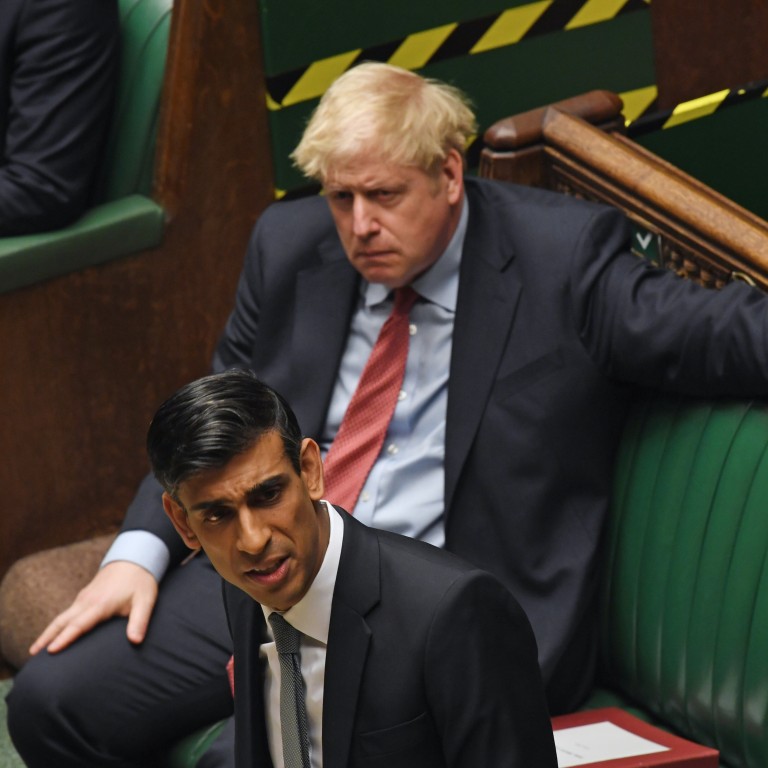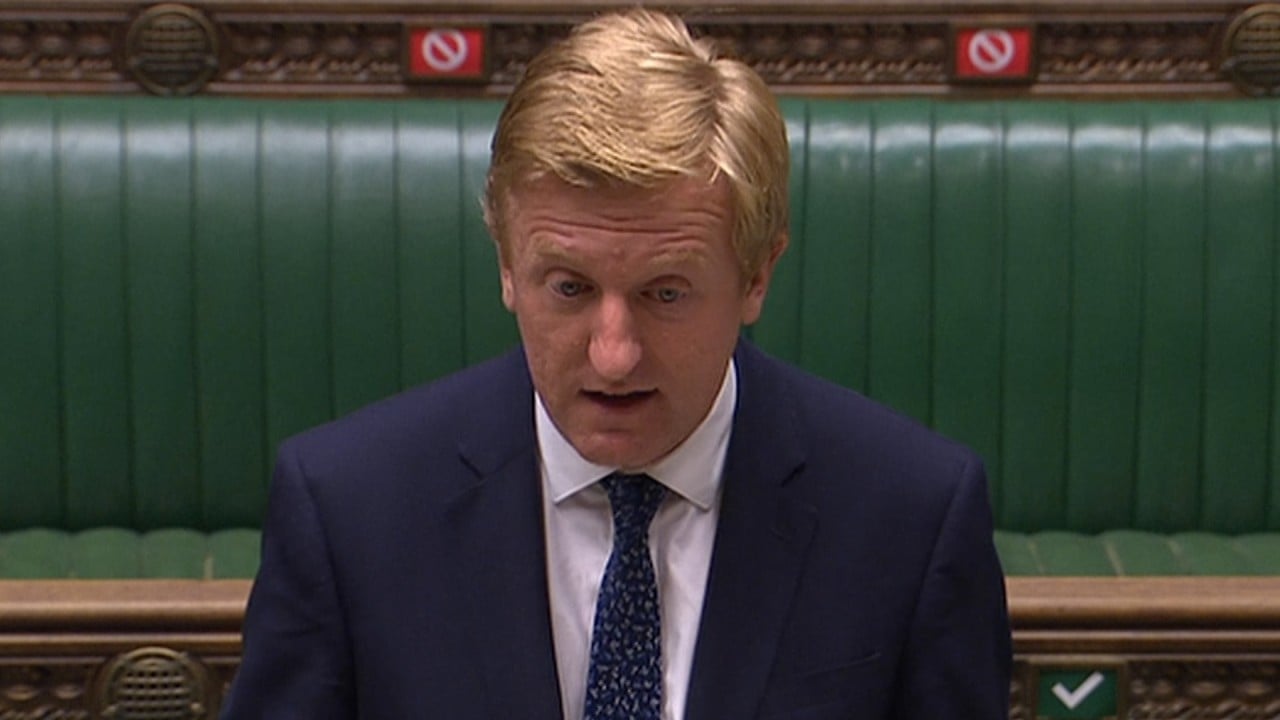
China reacts with fury after UK bans Huawei from 5G networks
- UK operators will not be able to add any new Huawei components to their 5G networks after December 31 this year
- The ban on Huawei will cost UK operators as much as 2 billion pounds (US$2.5 billion) to implement
China reacted with fury after the UK said Huawei Technologies will be banned from its next-generation mobile networks, in a sweeping crackdown on the company that will delay 5G roll-out and hit businesses with billions of pounds in extra costs.
Liu Xiaoming, China’s ambassador to Britain, called the decision “disappointing and wrong,” and said it had become “questionable whether the UK can provide an open, fair and non-discriminatory business environment for companies from other countries.”
Under the blueprint agreed by Prime Minister Boris Johnson, operators will not be able to add any new Huawei components to their 5G networks after December 31 this year. All equipment made by the Shenzhen-based company that is already installed will need to be removed from 5G infrastructure by 2027.
The announcement was a reversal of the position set out by Johnson’s government less than six months ago, and represents a diplomatic victory for Donald Trump, who initially failed to persuade the UK to block the company from its networks, but then imposed fresh sanctions against Huawei that forced the retreat. Other countries may now follow.
Britain bans Huawei from national 5G network
Trump’s National Security Adviser Robert C. O’Brien, in Paris to discuss China with his European counterparts, welcomed the announcement, saying it “reflects a growing international consensus that Huawei and other untrusted vendors pose a threat to national security, as they remain beholden to the Chinese Communist Party.”
But it is a further blow to British relations with China, which has warned Johnson will face “consequences” if the UK treats it as a “hostile partner.” Tensions have grown recently over China’s new security law in Hong Kong, a former British colony, and the handling of the coronavirus pandemic.

02:27
UK bans Huawei from 5G network after US sanctions
Johnson, his senior ministers and top security chiefs signed off on the plan at a meeting of the National Security Council on Tuesday morning. Culture Secretary Oliver Dowden later set out the details in Parliament. While 5G will be “transformative” for the UK, “confidence in the security and resilience of the infrastructure it is built upon” is vital, he said.
Ministers also warned operators to stop buying Huawei gear for their fixed full-fibre broadband networks. The government will consult industry on a timetable for the tighter regime on fixed networks, but said it is expected to come into force within two years.
US inches closer to federal contract ban for firms that use Huawei, ZTE
The ban on Huawei will cost UK operators as much as 2 billion pounds (US$2.5 billion) to implement, and will delay the roll-out of 5G networks by between two and three years, the government said.
BT Group and Three UK, owned by CK Hutchison Holdings, rely on Huawei more than other suppliers for their 5G networks, but BT said in a post-market statement it will not need to pay more than the 500 million pounds it had already budgeted to comply with the less-strict Huawei cap the UK government imposed back in January. The company’s shares rose as much as 4 per cent, making them the best-performing stock in the FTSE 100 Index on Tuesday.
A spokesman for Vodafone Group, which uses Huawei for about a third of its 4G antennas in the UK, said the company was “disappointed” and that the roll-out of 5G would be delayed.
China expert warns against total focus on self-reliance in chips
Throughout 2019, the Trump administration lobbied the UK to block Huawei from its networks. In January, that effort seemed to have failed, when Johnson’s government announced only a cap on how much technology the Chinese company could supply.
But Trump still had another card to play. In May, the US banned Huawei from sourcing microchips that use American technology. That forced British officials to reassess their view of the security and sustainability of using the company’s equipment in 5G networks.
Britain’s move could prompt Canada to bar Huawei from its 5G networks, and focuses attention on Germany, where pressure is growing in the legislature to act against the company, said James Lewis, director of the technology policy program at the Center for Strategic & International Studies in Washington.
“It’s a win for the Trump administration,” Lewis said in an interview. “They had a plan. They carried it out. And that contributed to this.”
India’s app ban raises the stakes for China’s global tech ambitions
Even without the sanctions move, Johnson might have struggled. Conservative lawmakers were convinced he was underestimating the threat posed by China, and were determined to block Huawei from 5G networks. In a symbolic vote in March they cut Johnson’s parliamentary majority from 80 to 24. Since then the UK has gone into lockdown as a result of coronavirus and the confrontation over Hong Kong has escalated, increasing concerns about China.
Even after Tuesday’s climbdown, some Conservatives wanted more. Iain Duncan Smith said that while he welcomed the decision, the government should shorten the seven-year timetable. “Let us bring it forward to five and let’s do it quickly,” he told Parliament. His colleague, Bob Seely, said in a statement he too wanted the government to move faster.
Huawei said it is disappointed by the ban and called on ministers to reconsider. “UK revenues are less than 1 per cent of Huawei’s global revenues,” executive vice president Jeremy Thompson told Bloomberg TV. But he added that “UK decisions tend to have a wider impact than just the geography bound by the UK.”

